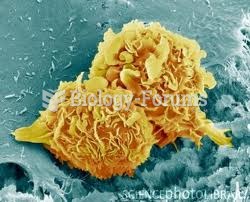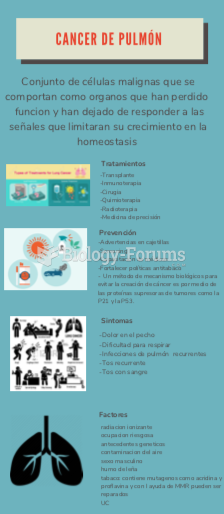Answer to Question 1
The goal for treating cancer is always to physically remove the tumor or interrupt the uncontrolled growth of the cells that constitute it. Treatment options to do this include surgery, radiation therapy, and chemotherapy. Which treatment or combination of treatments is used depends on many factors, such as the form, stage, and location of cancer, and the health and age of the patient.
Surgical treatment involves removing the cancerous growth with the hope that it has not spread to other parts of the body. If the cancer has metastasized (spread), surgery is often followed by radiation and/or chemotherapy. Radiation therapy involves exposing any residual or remaining cancer cells to high levels of x-rays to stop them from growing. Chemotherapy involves the use of drugs that halt the cycle of cell division. (Some chemotherapy agents work by interfering with the function of nutrients, such as folate, that are required for cell division. This is one reason why cancer can impact nutritional status. Unfortunately, chemotherapy agents are nonspecific, meaning that they kill noncancerous cells as well. Consequently, people receiving chemotherapy often experience many side-effects such as loss of appetite, poor nutrient absorption, weight loss, and hair loss.)
Answer to Question 2
Normal cells become initiated cells via a mutation in their DNA. An altered gene that is capable of transforming normal cells into cancer cells is called an oncogene. Although oncogenes can be genetically inherited from a parent, their formation is thought to be primarily caused by carcinogens. The body has many defense mechanisms to make sure that these types of genetically altered cells do not continue to divide and grow. For example, antioxidant vitamins and minerals can help prevent and repair some forms of DNA damage. The immune system is also involved in ridding the body of defective cells. In this way, antioxidants and the immune system can halt cancer growth at the initiation stage, preventing mutated cells from passing on their defective genes.






